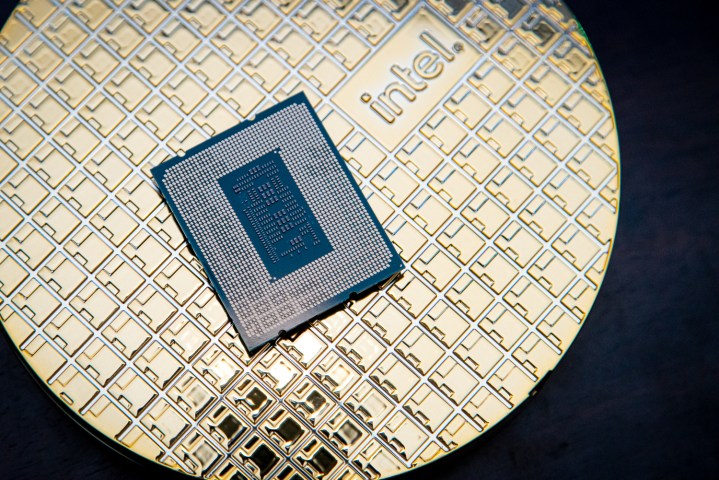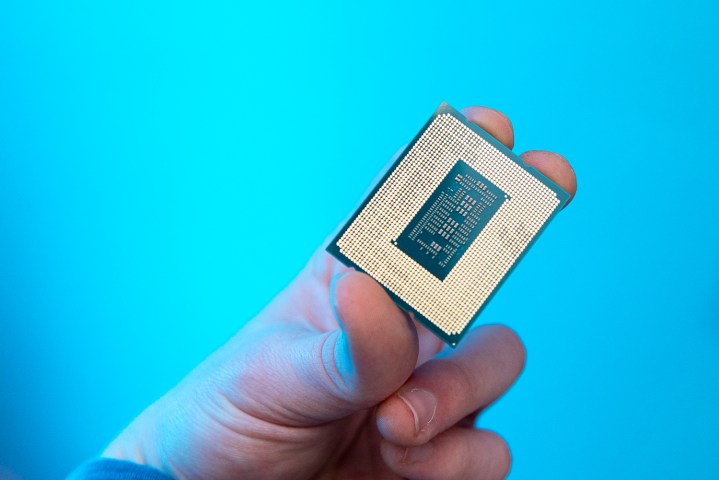During the past few years of searching for the best processors, AMD has usually come out on top. Aggressive pricing, a consistent core strategy, and assurance of future upgrades has been enough to explain away the few performance advantages Intel has had. So, I’m sure you could imagine my surprise when the Intel Core i5-14600K handily came out on top against AMD’s newer Ryzen 5 9600X.
It comes out ahead in quite a big way, too. Although the Ryzen 5 9600X and Core i5-14600K are both excellent CPUs under $300, it looks like Team Blue is taking the win this time.
Specs

The Core i5-14600K and Ryzen 5 9600X may look like wildly different CPUs, but they’re more similar than their specs suggest. That comes down to Intel’s hybrid architecture. Like the last few generations, the Core i5-14600K mixes performance (P) cores and efficient (E) cores together on the same chip. The E-cores aren’t very powerful, but they can step in to help when the P-cores are struggling. Still, the main driver of performance on the Core i5-14600K are the six P-cores.
That’s why the Core i5-14600K and Ryzen 5 9600X are so similar. It’s true that the Core i5-14600K has access to far more threads, but these are essentially both six-core CPUs, at least when it comes to the big computing power. For tasks that only stress one or a few cores, you should expect the Ryzen 5 9600X to come out ahead due to its newer Zen 5 architecture.
| Ryzen 5 9600X | Core i5-14600K | |
| Cores/Threads | 6/12 | 14 (6 P + 8 E)/20 |
| L3/L2 Cache | 32MB / 6MB | 24MB / 20MB |
| Max turbo frequency | 5.4GHz | 5.3GHz |
| TDP | 65W | PL1: 125W / PL2: 181W |
However, most modern apps don’t only use one or a few threads. As I’ll get into with my benchmarks below, most modern apps appreciate the extra threads available to them with the Core i5-14600K, and that even extends to games.
Outside of core count, the other interesting note is power. There’s no question that the Ryzen 5 9600X is more efficient than the Core i5-14600K. In terms of performance, the Ryzen 5 9600X will consume less power during similar tasks. How big of a difference that makes really depends on your rig and how much electricity costs in your country. By the numbers, it seems like the Core i5-14600K is sucking down some insane amount of power, but at least in the U.S., it doesn’t make a huge difference in practice. That’s especially true in games, where the Core i5-14600K will never hope to run up to 125 watts.
Pricing

Unlike the Ryzen 9 9950X and Core i9-14900K, these two CPUs are very close in price. You’ll spend $300 on the Core i5-14600K, while the Ryzen 5 9600X will run you $280. By the high-level numbers, AMD wins on price, even if you’re only saving $20. There’s a bit more to the story here, though.
The Ryzen 5 9600X is your only option for this class of CPU in AMD’s latest generation right now. Intel has more varieties of the Core i5-14600K available. For instance, the Core i5-14600KF, which cuts integrated graphics, is available for $290. The Core i5-14600K is much older than AMD’s Ryzen 5 9600X, so you can find secondhand options too. The going price is around $250, but I’ve seen some units go for as little as $200.
We’ll eventually see the Ryzen 5 9600X reach that point. AMD will mark down the CPU when sales come around, and secondhand listings will go up. For the next few months, though, you have more options with the Core i5-14600K to score a deal. The Ryzen 5 9600X is technically cheaper, but I’m willing to call pricing a tie, at least for now.
Productivity performance

When it comes to productivity prowess, Intel holds a fairly significant edge with the Core i5-14600K. That’s mainly due to the CPU’s hybrid architecture, which allows Intel to offer 20 threads on the Core i5-14600K compared to 12 on the Ryzen 5 9600X. You can see how that dynamic works out in Cinebench R23 above. The Ryzen 5 9600X holds a solid single-core lead, but it gets absolutely decimated when it comes to multi-core performance.

On higher end CPUs, Intel’s hybrid approach isn’t always the right one. For this comparison, however, it makes a big difference. Handbrake is a great example of that. Video transcoding is a task that will take any CPU power available, and the higher thread count on the Core i5-14600K completes the transcode much faster as a result.

It’s not just these two benchmarks, either. In Blender, which is a rendering app similar to Cinebench, the Core i5-14600K comes out between 25% and 30% faster than the Ryzen 5 9600X.

Shockingly, the same was true in 7-Zip. Historically, AMD has dominated in a compression benchmark like 7-Zip, but Intel is coming out around 30% ahead with the Core i5-14600K here. Comparing these two CPUs directly, this was the result that shocked me the most considering how often AMD ends up at the top of 7-Zip charts.

The only clear lead for the Ryzen 5 9600X is in Y-Cruncher, where both CPUs calculated 500 million digits of Pi. AMD is certainly ahead when it comes to single-core performance. In multi-core performance, however, the two CPUs are basically in lockstep.
The biggest problem for the Ryzen 5 9600X is that it’s a six-core CPU. Those may be six powerful cores, but the fact that the Core i5-14600K offers more cores, even if they’re much weaker, means that it’s able to deliver more in productivity apps.
Gaming performance

The Core i5-14600K and Ryzen 5 9600X are shockingly competitive when it comes to games. Overall, the Core i5-14600K comes out slightly ahead due to games like Hitman 3, where it shows a large lead. However, you could pick up either of these CPUs and have a great gaming experience. They mostly trade blows in games, and in the case of titles like F1 2022 and Gears Tactics, the difference in performance won’t really show up in practice.
The interesting bit when it comes to gaming is Intel’s hybrid architecture. Due to using two different types of cores, tasks don’t always get placed on the most performant thread. These situations are few and far between, and we’ve seen them addressed in games like Cyberpunk 2077. It’s not something you should run up against a lot, if at all. If you’re going with the Core i5-14600K, though, it’s still something you should be aware of.
On the other end, the performance of the Ryzen 5 9600X is still very much in question. The results above are what you can expect to see out of the box today, but AMD has said there are a handful of factors within Windows that could affect performance. It’s possible the Ryzen 5 9600X will be faster in games in the future, but for now, the two CPUs are very competitive.
Not what I expected

I didn’t expect the Core i5-14600K to come out ahead. The Ryzen 5 9600X is a newer CPU, and AMD has held a fairly consistent lead over Intel the past few generations, particularly when it comes to games. That’s not the case here. The Core i5-14600K is faster when it comes to productivity apps, and it holds a slight, but compelling lead when it comes to gaming.
I’m comfortable recommending it, too. There’s been no shortage of coverage on Intel’s instability woes, but those issues haven’t applied to the Core i5-14600K. At the very least, you can apply Intel’s microcode update and rest easy under its new five-year warranty, which should be enough to cover any potential issues on the Core i5-14600K.





